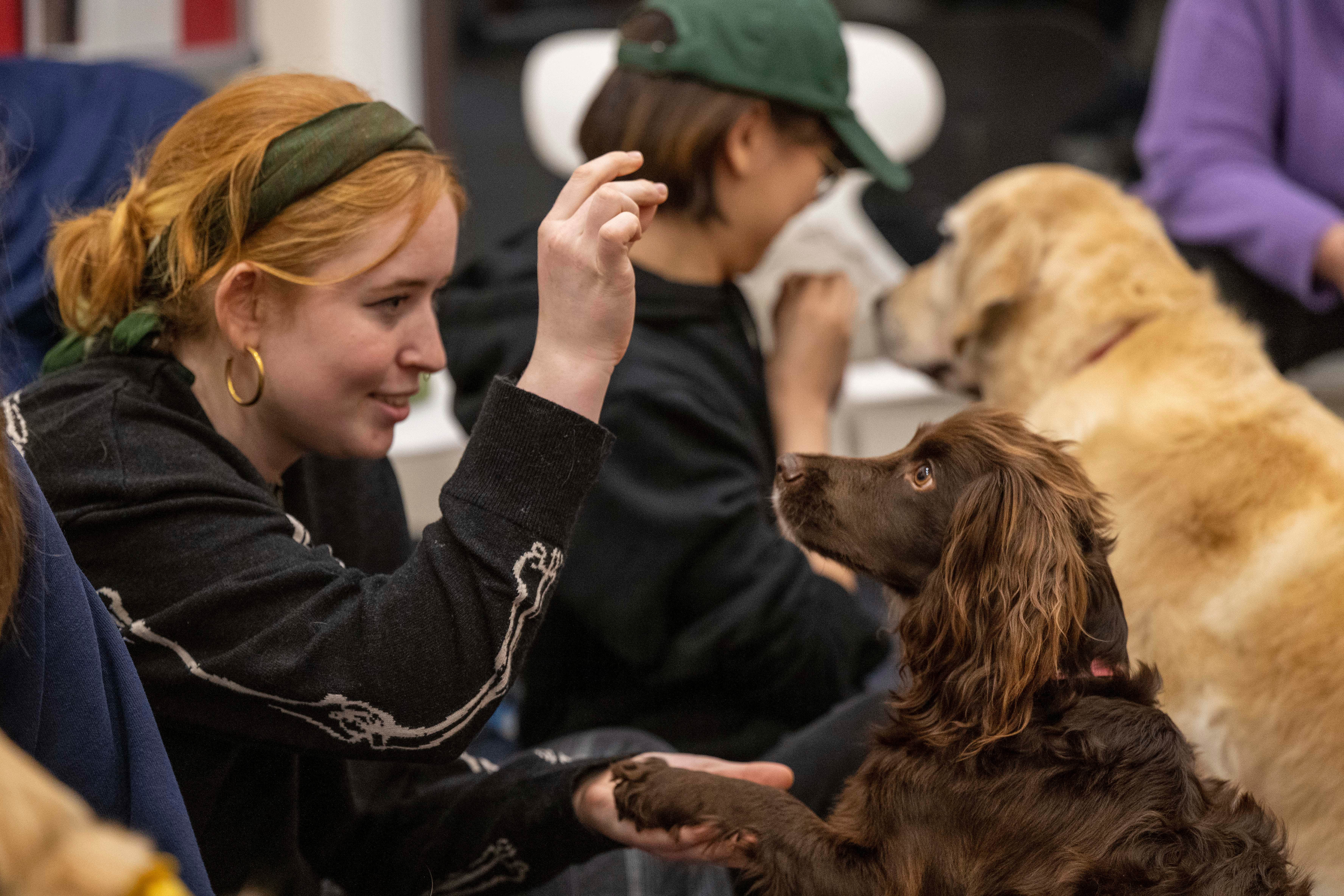Dogs to play lead role in university’s project for student wellbeing
The University of Edinburgh has launched a programme providing a new style of support for students suffering from stress and anxiety.

Your support helps us to tell the story
From reproductive rights to climate change to Big Tech, The Independent is on the ground when the story is developing. Whether it's investigating the financials of Elon Musk's pro-Trump PAC or producing our latest documentary, 'The A Word', which shines a light on the American women fighting for reproductive rights, we know how important it is to parse out the facts from the messaging.
At such a critical moment in US history, we need reporters on the ground. Your donation allows us to keep sending journalists to speak to both sides of the story.
The Independent is trusted by Americans across the entire political spectrum. And unlike many other quality news outlets, we choose not to lock Americans out of our reporting and analysis with paywalls. We believe quality journalism should be available to everyone, paid for by those who can afford it.
Your support makes all the difference.Dogs are at the heart of a wellbeing programme at one of Scotland’s largest universities to help boost the mental health of its students and promote an understanding of canine welfare.
The University of Edinburgh has launched its Paws on Campus programme, which is designed to provide a new style of support for students suffering stress and anxiety, and combines clinical psychology with veterinary science through a series of structured activity sessions.
Professor Jo Williams, one of the programme’s creators, said that interacting with dogs can “have a range of benefits for students from reducing stress to increasing positive mood”.
“Each session has a key focus, based on psychological research, to enhance wellbeing and provide each participant with skills that they can use to support their mental health,” she said.
Interacting with the dogs is an essential part of the programme and students are also learning about canine welfare and compassion to self and others
“Interacting with the dogs is an essential part of the programme and students are also learning about canine welfare and compassion to self and others.”
Each session focuses on specific learning outcomes and therapeutic objectives that are designed to help students reflect on their own challenges and recognise the connections between their wellbeing and an animal’s welfare needs, the university said.
Its use of psychological principles differs to other pet therapies, the university said, being the first of its kind to combine student mental health and animal welfare through a series of planned sessions.
Following trial sessions towards the end of last year, staff have set up a referral route to link the programme with the university’s student wellbeing programme.
Once a student has been referred to the scheme, and completed a screening process, students are then offered a series of four, weekly sessions with a small group of other students and a registered therapy dog and its handler.
During the sessions, students will engage in a range of canine-assisted, wellbeing exercises including interacting with the dog, breathing exercises, and relaxation techniques.
Izzy Adams, a third year student who took part in the trial sessions, said it had been “great learning the various grounding and awareness techniques that you can also do in your own time”.
“I found it made mindfulness – something that I struggled with before – so much easier when there is a dog to focus on,” she said.